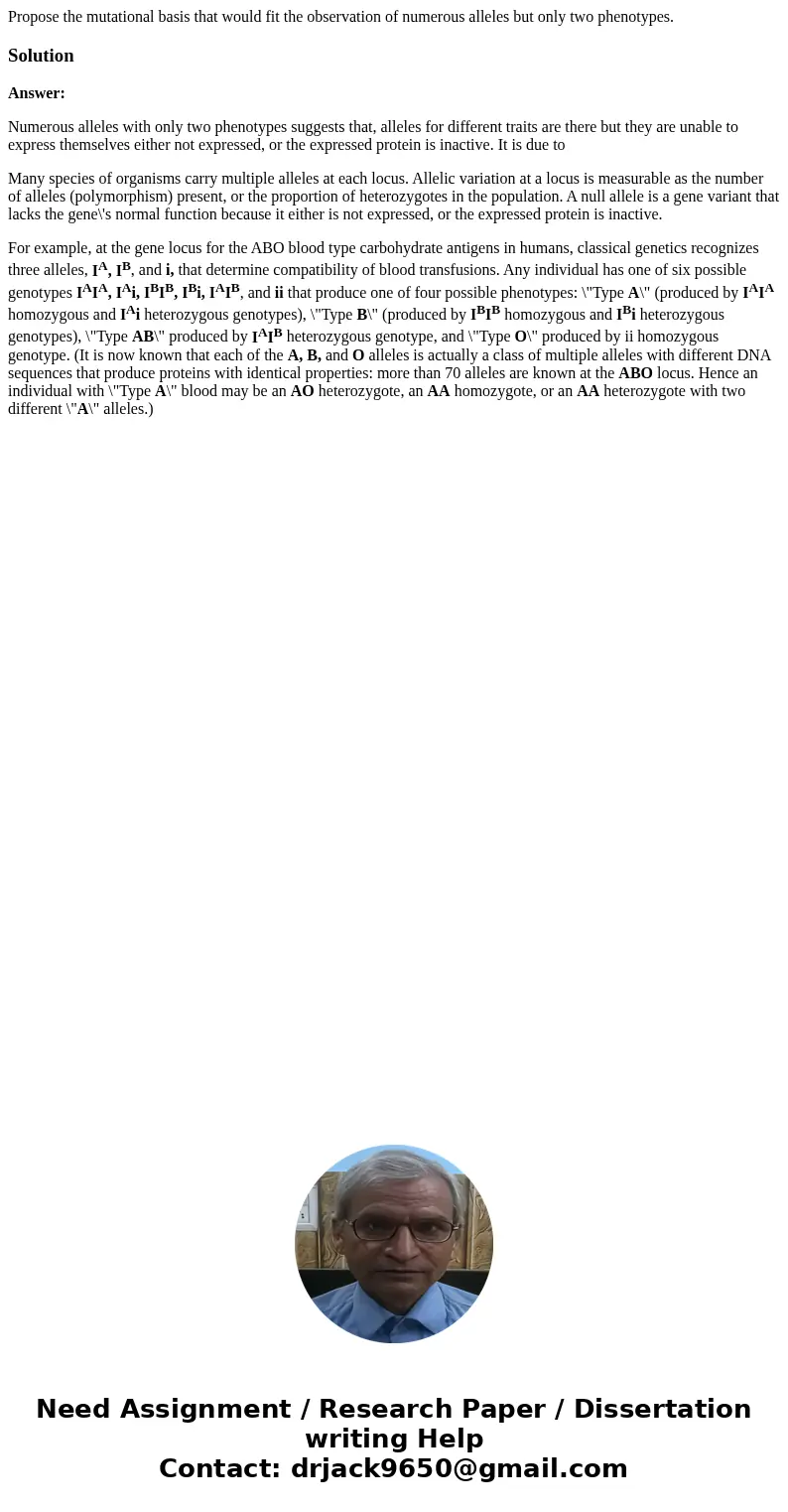Propose the mutational basis that would fit the observation
Propose the mutational basis that would fit the observation of numerous alleles but only two phenotypes.
Solution
Answer:
Numerous alleles with only two phenotypes suggests that, alleles for different traits are there but they are unable to express themselves either not expressed, or the expressed protein is inactive. It is due to
Many species of organisms carry multiple alleles at each locus. Allelic variation at a locus is measurable as the number of alleles (polymorphism) present, or the proportion of heterozygotes in the population. A null allele is a gene variant that lacks the gene\'s normal function because it either is not expressed, or the expressed protein is inactive.
For example, at the gene locus for the ABO blood type carbohydrate antigens in humans, classical genetics recognizes three alleles, IA, IB, and i, that determine compatibility of blood transfusions. Any individual has one of six possible genotypes IAIA, IAi, IBIB, IBi, IAIB, and ii that produce one of four possible phenotypes: \"Type A\" (produced by IAIA homozygous and IAi heterozygous genotypes), \"Type B\" (produced by IBIB homozygous and IBi heterozygous genotypes), \"Type AB\" produced by IAIB heterozygous genotype, and \"Type O\" produced by ii homozygous genotype. (It is now known that each of the A, B, and O alleles is actually a class of multiple alleles with different DNA sequences that produce proteins with identical properties: more than 70 alleles are known at the ABO locus. Hence an individual with \"Type A\" blood may be an AO heterozygote, an AA homozygote, or an AA heterozygote with two different \"A\" alleles.)

 Homework Sourse
Homework Sourse